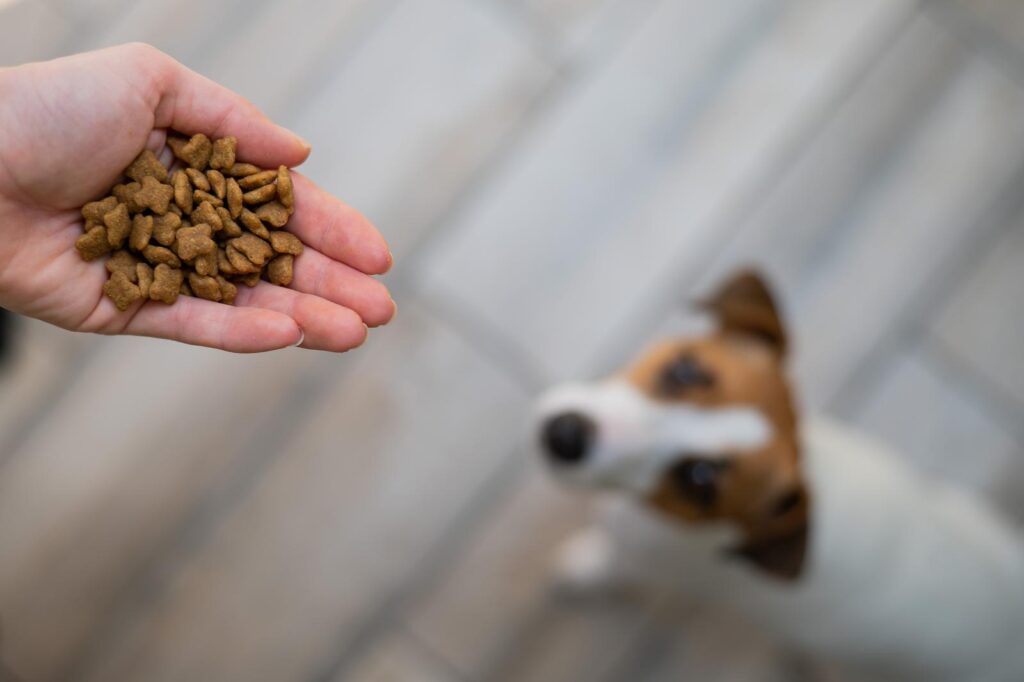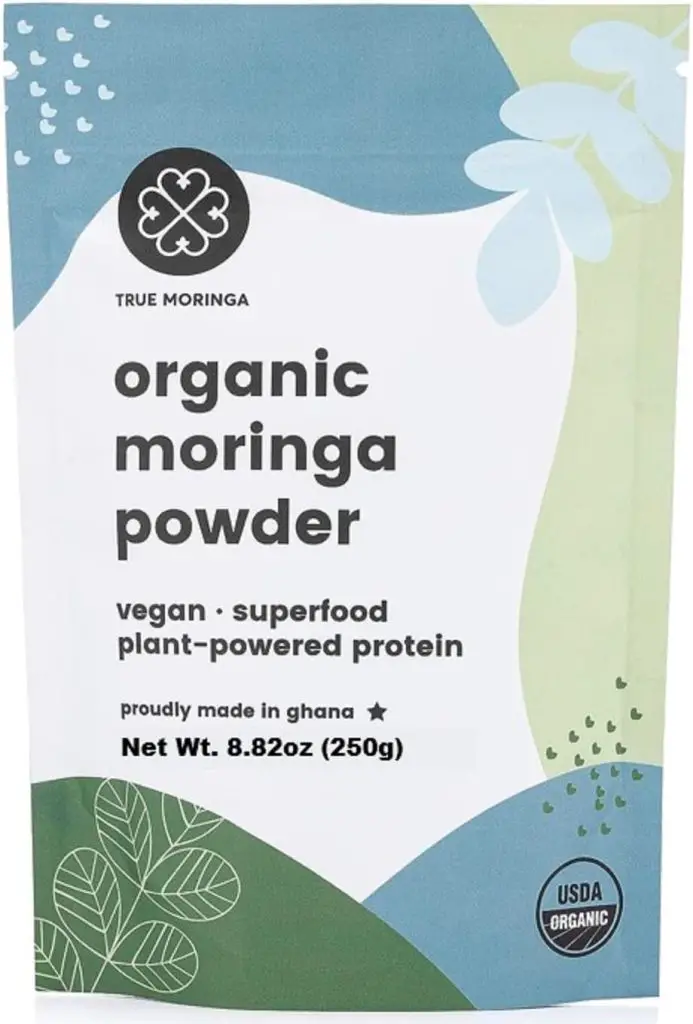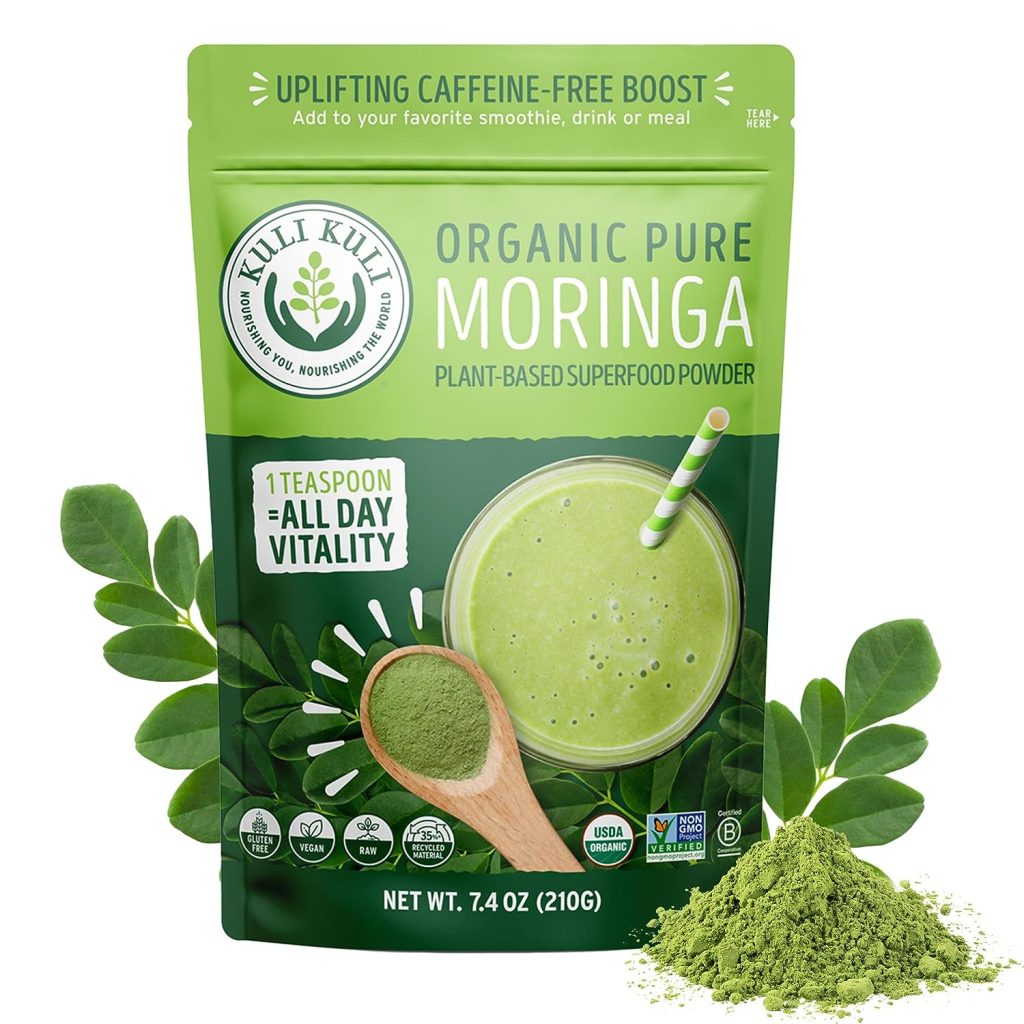Nourishing Our Furry Friends: A Closer Look at the Benefits of Moringa Consumption in Dogs
Moringa Oleifera is a miracle tree used for centuries in traditional medicine. It is believed to have many health benefits, including improved digestion, increased energy, and better circulation.
While we know this superfood’s long list of health benefits, there has been some debate over whether Moringa is safe for dogs. In this article, we will investigate the truth about Moringa and dogs: Is it safe for them to eat it?
Let’s find out!
If you are new to Moringa and want to learn more about it’s nutritional benefits, you can read this article:
Is Moringa Safe For Dogs?
The short answer is yes; Moringa is safe for dogs. However, as with any new food, it’s always best to introduce it slowly and in small amounts.
This will help your dog adjust to the new taste and smell. This will also allow you to monitor your dog’s health for potential side effects.
Be on the lookout for allergic reactions; our dogs didn’t have one – but it is possible.
Moringa is a rich source of vitamins, minerals, and antioxidants, and it also contains high levels of fiber, which can help your dog with digestion.
Moringa can benefit your dog’s diet when added to a healthy diet.

Antioxidants also help out dogs, protecting them from potentially dangerous cancer cells caused by free radicals.
We emphasize that Moringa is not a magic ‘pill’ to fix a bad diet. If your dog’s diet is currently poor, you may find more success putting effort into improving your furry friend’s diet first.
How To Prepare Moringa For Your Dog (Boil Moringa Leaves)
Adding Moringa to your dog’s diet should be a slow and gradual process.
We started with a few leaves from our backyard and progressed to almost two whole handfuls for our dog’s dinner.
Here is a step-by-step guide to getting your dog to eat Moringa:
- Strip the Moringa leaves from the stem.
- Add them to a bowl with clean water
- Mix them around (to clean them)
- After cleaning, drain the Moringa leaves
- Add Moringa leaves to a pot with one cup of water
- Boil your leaves for about 2-3 minutes.
- Without extracting the water, add dry and wet dog food.
- Mix these and serve them to your dog
We promise your dog will love it!
Here’s a visual guide for our visual learners:
Moringa Benefits For Dogs
Moringa is an excellent source of vitamins, minerals, and antioxidants. It also contains high levels of fiber, which can help with digestion.
Vitamins A, C, and E are all present in Moringa leaves. Moringa is also a great source of potassium, calcium, and iron.
These vitamins are essential for a healthy immune system, strengthening joints, muscles, teeth, and bones, improving skin and coat health, and aiding in good vision.
These nutrients are essential for keeping your best friend happy and healthy!

How Often Should You Give Your Dog Moringa?
You should give your dog Moringa every single day. This has little to do with Moringa and more to do with how the nutrients within Moringa work.
You want to ensure your dog isn’t deficient in any vitamins or minerals, and once you stop taking Moringa, these values will start to decrease.
Consistent supplementation with Moringa leaves will allow these Vitamins and minerals to stay at optimal levels, keeping you and your dog happy.
Moringa Dosage For Dogs
For our dogs, we like to use the ‘handful’ rule. We keep picking leaves off our stems until we have a decent handful.
If you have a smaller dog, you’ll probably only want to do one or two handfuls, and bigger dogs will probably need three or four handfuls.
Your dog will tell you if they need more or less. Monitor your dog’s mood and activity level and address the dosage.
For example, this would be one handful.

What Is The Best Type Of Moringa For My Dog Or Pet?
We’re conflicted here because there is what we think is best and what we do.
The best type of Moringa for your dog has to be in powder form. The powder is made from dried, and ground Moringa leaves. Moringa powder is more potent than fresh or dry leaves and will provide your dog with the most vitamins, minerals, and antioxidants.
It’s also easier to sneak in your dog’s bowl, as your dogs won’t be able to see the green leaves. The powder is also more shelf-stable than other forms of Moringa and will last longer.
There are two great brands for Moringa powder that we like to use at Morning Gardens:
However, as we said above – we give our dogs fresh leaves mixed into their food. We’ve never had problems doing it this way (besides one stubborn dog).
It’s about ease of use for us, as we can walk outside and pick some leaves.

My dog Won’t Eat Moringa, What Should I Do?
One of my dogs is stubborn like this, but we eventually found a way around this. As dogs age, they may experience joint pain, making it challenging to move around and enjoy life like they once did.
Fortunately, several things can be done to help ease a dog’s joint pain without forcing your dog to eat the Moringa.
One option is to apply Moringa oil to the affected area, and Moringa oil is a natural anti-inflammatory and can be applied topically.

It’s also safe for dogs, making it an ideal treatment option for those who want to avoid medication. If you’re looking for a way to help your elderly dog feel more comfortable, applying Moringa oil to their joints may be worth a try.
Moringa For Dogs Side Effects
The most common side effect of feeding Moringa to dogs is an upset stomach. This is usually only temporary as your dog’s digestive system adjusts to the new food.
If your dog has an upset stomach after eating Moringa, try reducing the amount you give them until their stomach settles, and you can then increase the amount gradually over time.
Another potential side effect is increased energy levels, which is more likely to occur in puppies and younger dogs.

If you notice your dog becoming excessively playful or hyperactive after eating Moringa, reduce the amount you give them.
As with any new food, starting with a small amount is always best and increasing gradually over time.
This will help you avoid any potential side effects and allow you to see how your dog reacts to the new.
Conclusion
Moringa is safe for dogs to eat for the reasons below:
- Moringa is a rich source of vitamins, minerals, and antioxidants, and it also contains high levels of fiber, which can help your dog with digestion.
- Antioxidants also help out dogs, protecting them from potentially dangerous cancer cells caused by free radicals.
You can give your dog a handful of Moringa on a daily basis, but remember that it is always best to introduce it slowly and in small amounts, as this will help your dog adjust to the new smell and taste.
The way we started giving our dog Moringa is by boiling the Moringa leaves and mixing it with our dog’s wet and dry food. I promise, your dog will love it!

For years now, Moringa has been a daily consumption in my life, incorporated in various forms such as capsules, food recipes, and soothing teas. Initially, my daughter and I embarked on this journey as an experiment, but as time went on, I delved deeper into its remarkable potential and unearthed the unlimited benefits it offers for our well-being and health. I got motivated by how much it positively impacted me and decided to share my insights about Moringa’s profound impact on health and overall living through my blog posts.


